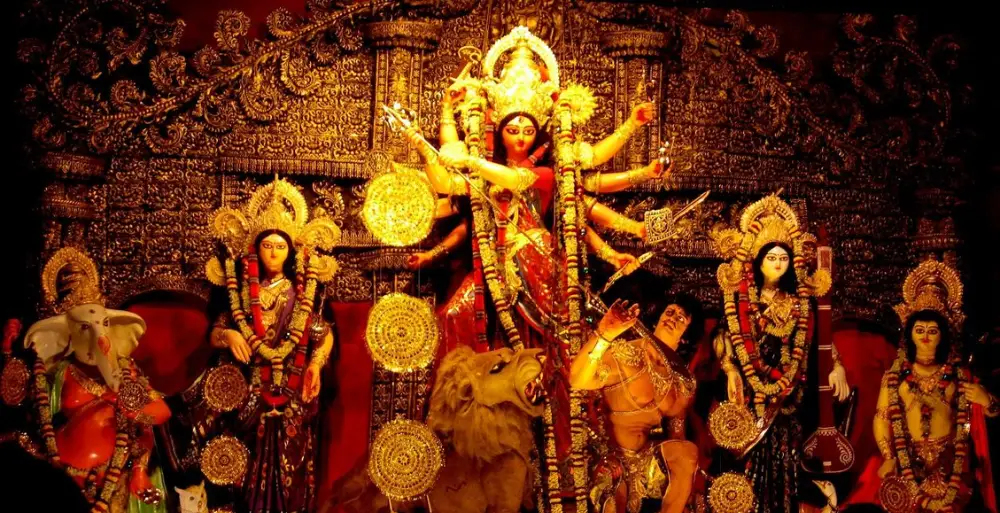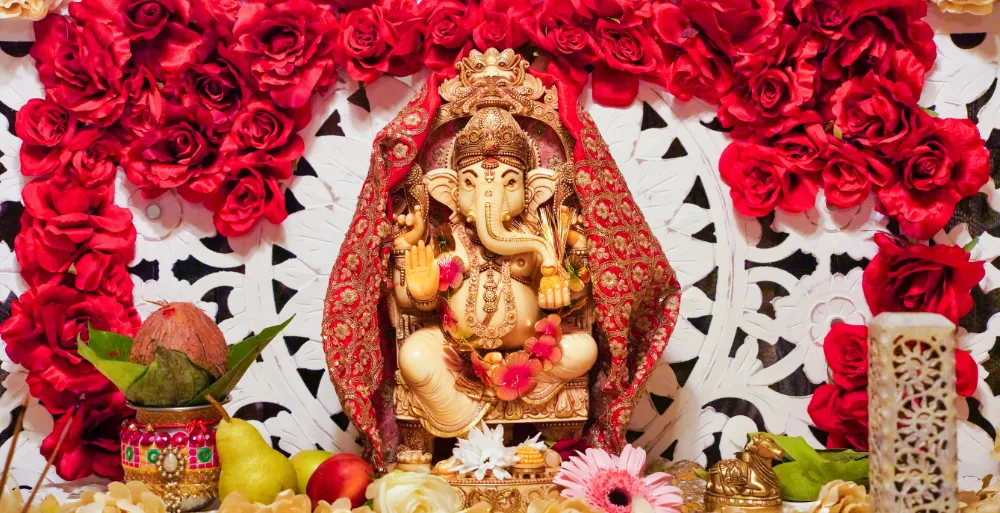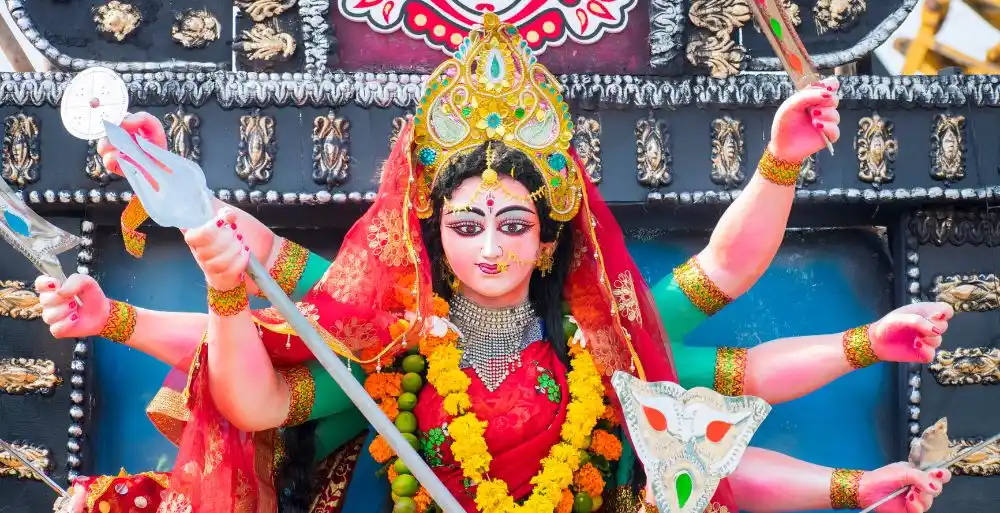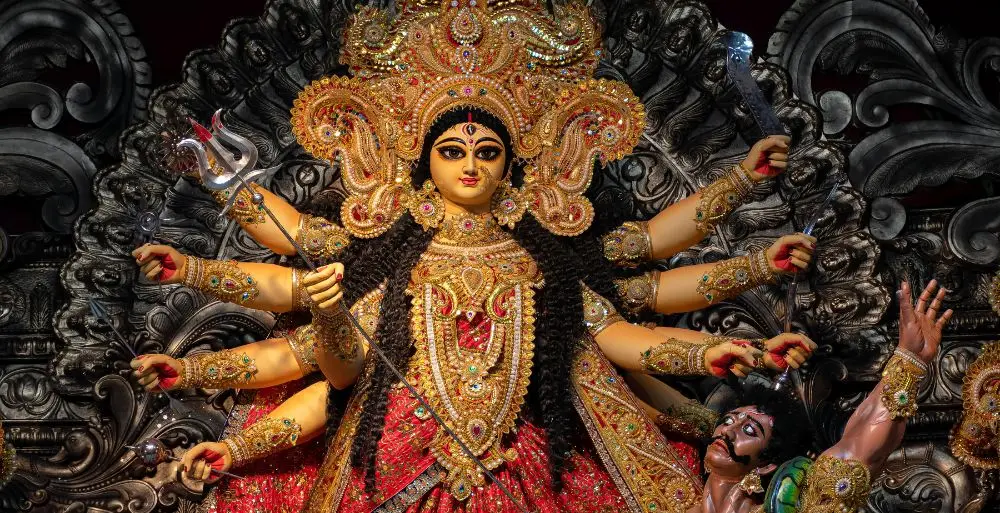The 6th day of Navratri is significant and powerful in the nine-day celebration honouring the holy feminine spirit, Devi Durga. On this day, followers worship Goddess Katyayani, the sixth form of Goddess Durga. India celebrates this day with significant respect, devotion, and spiritual enthusiasm.

Who is Goddess Katyayani?

According to Hindu mythology, Goddess Katyayani is believed to be born out of the accumulated anger of the gods, in response to the atrocities of the demon Mahishasura. She was born to the sage Katyayana, hence the name Katyayani. This form of the goddess symbolizes courage and victory, making her a fierce warrior goddess.
She is depicted riding a lion, holding a sword, and lotus, and with the gesture of showering blessings. Her bravery is revered; she is considered the goddess who helps devotees overcome obstacles and attain freedom from negativity.

Spiritual Significance of 6th Day of Navratri

On the 6th day of Navratri, devotees worship Goddess Katyayani to seek her blessings for courage, strength, and protection from negative forces. Unmarried girls believe that worshipping her can help remove obstacles in their path to marriage and ensure a happy marital life, which is why she is often called the “Goddess of Marriage.” People facing delays in marriage or relationship challenges also offer special prayers to Goddess Katyayani.
Apart from personal prayers, this day is also significant for seeking inner strength. Worshippers ask for her blessings to overcome personal challenges, conquer fears, and triumph over negativity.
Also Read: 1st Day of Navratri: Goddess Shailputri Worship Guide

Rituals and Traditions of the 6th Day of Navratri
On the 6th day, devotees observe a variety of rituals to honour Goddess Katyayani.
Fasting: Many devotees observe a strict fast on this day, consuming only fruits and water, while others follow a simple satvik diet.
Altar Decoration: Devotees decorate the altar with flowers, garlands, and offerings, using yellow as an auspicious color.
Chanting and Prayers: Devotees recite special prayers, chants, and hymns, including the “Katyayani Mantra,” to invoke the goddess’s blessings.
Kumari Puja: On this day, devotees worship young girls as representations of the divine feminine.
Also Read: 2nd Day of Navratri: Worship Guide for Maa Brahmacharini

Katyayani Devi Bhog and Prasad

Maa Katyayani likes honey and yellow-coloured offerings. A popular choice is a halwa made with ghee, suji (semolina), and honey. Alternatively, you can offer pedas made with cow’s milk and a hint of saffron to give them a yellow colour.
Also Read: 3rd day of Navratri: Goddess Chandraghanta Worship Guide

Katyayani Devi Mantras and Aarti
The mantra for Katyayani Devi is “क्लीं श्री त्रिनेत्रायै नम:”. Another mantra for Katyayani Devi is “या देवी सर्वभूतेषु माँ कात्यायनी रूपेण संस्थिता। नमस्तस्यै नमस्तस्यै नमस्तस्यै नमो नम:”. The aarti for Katyayani Devi is a prayer that praises her beauty and power.
Also Read: 4th Day of Navratri: Goddess Kushmanda Worship Guide

The symbolism of Goddess Katyayani in Modern Life
In today’s fast-paced world, the qualities of Goddess Katyayani, such as strength, courage, and resilience, resonate deeply with many people. They seek her blessings not only for protection, but also for the determination needed to face personal struggles, professional challenges, and social pressures.
As a divine symbol of balance, her worship on this day encourages individuals to focus on self-improvement, inner peace, and mental strength.
Also Read: 5th Day of Navratri: Maa Skandamata Worship Guide

Conclusion For 6th Day of Navratri:
On the 6th day of Navratri, devotees seek the blessings of Goddess Katyayani, who represents strength, courage, and victory over evil. Through fasting, prayers, and rituals, worshippers connect with her powerful energy and receive protection and inner strength.
This day is a reminder that our inner strength can help us overcome any challenges we face. Worshipping Goddess Katyayani on this day can bring strength, positivity, and the ability to triumph over adversity into your life, just as the goddess herself embodies.
Table of Contents
6th Day of Navratri





